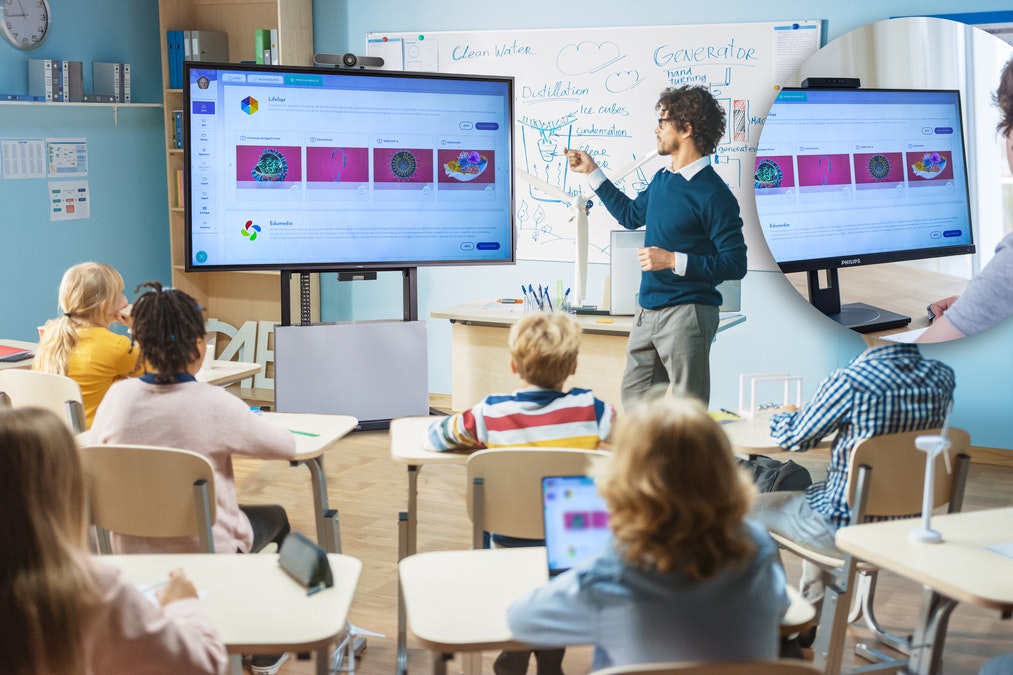Personalized Primary Science Tuition Singapore to Cater to Your Child’s Needs
Personalized Primary Science Tuition Singapore to Cater to Your Child’s Needs
Blog Article
Discover the Necessary Advantages of Understanding Key Scientific Research for Young Learners
The importance of main scientific research education for young students prolongs much past simple expertise acquisition; it functions as an essential column in developing important abilities such as critical thinking, problem-solving, and creative thinking. Involving with scientific ideas via interactive and inquiry-based tasks not just grows interest but likewise lays the foundation for resistant, confident learners. As we check out these advantages further, it comes to be clear that the ramifications for future academic and personal development are extensive. Nonetheless, what specific strategies can instructors employ to maximize these benefits?
Enhancing Critical Assuming Abilities
Promoting important thinking skills in young students is crucial for their cognitive development and future academic success. Important reasoning makes it possible for children to examine details, assess evidence, and make informed choices, which are important abilities in today's information-rich culture. By participating in scientific questions, young students can enhance these abilities as they check out concepts via observation, testing, and reasoning.
In main science education and learning, educators can facilitate important thinking by encouraging students to ask questions, develop hypotheses, and carry out experiments. This hands-on strategy permits youngsters to exercise analytic and create sensible reasoning abilities. When trainees investigate the residential or commercial properties of products or the concepts of activity, they find out to analyze their searchings for seriously and attract verdicts based on proof.
Furthermore, conversations and collaborative jobs can promote important reasoning by giving opportunities for students to express their thoughts, difficulty presumptions, and consider diverse point of views. By developing a helpful setting that values questions and representation, teachers can nurture vital thinking abilities that equip young students to end up being independent thinkers and lifelong learners. Inevitably, boosting these skills lays a durable foundation for their future academic endeavors and individual growth.
Cultivating Inquisitiveness and Expedition

Key science education provides a structured environment where young students can explore various sensations via hands-on experiments and observations. By allowing them to connect with materials and take part in inquiry-based understanding, teachers develop chances for children to create hypotheses, check their ideas, and reason. Such experiences support a sense of marvel and enjoyment concerning science.

Structure Confidence in Problem Fixing
Structure self-confidence in analytical is an important element of key science education that empowers young students to come close to challenges with strength and creativity - primary science tuition Singapore. They create important skills in crucial reasoning and evaluation when kids are motivated to engage with scientific ideas via hands-on tasks and inquiry-based understanding. This process not only enhances their understanding of clinical principles however likewise promotes a feeling of ownership over their discovering
To develop self-confidence, instructors must produce a this link supportive environment where blunders are deemed opportunities for development instead of failures. This encourages students to take risks and explore different services to issues. By supplying scaffolding and support, instructors can assist trainees navigate intricate jobs, slowly boosting their freedom in analytic circumstances.
Additionally, collective learning experiences, such as team tasks or experiments, can additionally improve students' self-confidence as they learn to articulate their thoughts and pay attention to others' viewpoints. These communications support social abilities and enhance the idea that analytic is often a cumulative endeavor. Ultimately, cultivating confidence in problem-solving prepares young students for future academic obstacles and outfits them with the devices essential for lifelong learning.
Motivating Imagination and Innovation
In the world of main scientific research education and learning, urging imagination and development is necessary for growing a vibrant knowing environment. By promoting a society where young learners can check out concepts and experiment openly, teachers aid students establish important assuming skills and an interest for discovery. Creativity in scientific research urges children to ask inquiries, design hypotheses, and participate in hands-on activities that promote their imagination.
Incorporating flexible projects and inquiry-based discovering right into the curriculum allows pupils to share their one-of-a-kind point of views and solutions. When tasked with addressing a problem related to their environment, students can conceptualize several techniques, leading to inventive results that showcase their originality. This not just grows their understanding of clinical concepts but additionally infuses a feeling of possession over their learning process.
Furthermore, imaginative scientific research education and learning nurtures collaboration amongst peers, as students frequently share concepts and construct on one another's insights - primary science tuition Singapore. This joint spirit advertises not just innovation but also vital social skills. Hence, by prioritizing creative thinking and innovation in key scientific research education and learning, we equip young students to assume seriously, welcome challenges, and envision opportunities, laying a strong foundation for lifelong understanding and expedition
Preparing for Future Understanding Challenges
Young students' ability to browse future understanding challenges depends upon a strong foundation in primary scientific research education and learning. This fundamental understanding equips pupils with critical over here thinking abilities and a systematic strategy to analytic, crucial for dealing with intricate issues in an ever-evolving globe. Primary science promotes inquiry-based discovering, encouraging pupils to ask questions, discover theories, and involve in hands-on experiments.
As they develop these skills, students end up more tips here being skilled at analyzing data, recognizing patterns, and attracting notified conclusions. Such expertises are important not just in scientific areas however likewise in engineering, modern technology, and math (STEM), where interdisciplinary knowledge is significantly critical.
Additionally, main science education and learning cultivates a feeling of curiosity and strength in young students, enabling them to see difficulties as possibilities for development. As they come across and get rid of challenges in their clinical explorations, they construct self-confidence in their capacity to adapt and innovate.
Inevitably, a solid structure in primary science not only prepares young learners for scholastic pursuits however also outfits them with the devices necessary for lifelong learning and adaptability in a quickly altering international landscape. By purchasing main scientific research education and learning, we are purchasing the future capacity of our students.
Conclusion
Recognizing primary scientific research is vital for young learners, as it cultivates crucial thinking, interest, and creative thinking. Involving with clinical principles via hands-on experiments enhances problem-solving capabilities and develops resilience. This fundamental expertise not just gears up pupils to examine data and identify patterns yet also nurtures an inquiry-based state of mind. Eventually, the benefits of main scientific research education and learning prepare children for future scholastic quests and impart lifelong knowing practices essential for thriving in an ever-evolving world.
The relevance of main science education and learning for young students prolongs much past plain expertise acquisition; it offers as a fundamental column in creating necessary abilities such as essential thinking, problem-solving, and imagination. By producing a helpful environment that values query and reflection, teachers can nurture crucial believing abilities that equip young learners to come to be lifelong students and independent thinkers. Therefore, by focusing on imagination and advancement in main science education and learning, we equip young students to believe critically, accept challenges, and envision possibilities, laying a solid foundation for long-lasting discovering and expedition.
Young learners' ability to navigate future discovering challenges pivots on a solid foundation in key science education and learning.Recognizing main scientific research is essential for young students, as it fosters essential reasoning, curiosity, and creative thinking.
Report this page